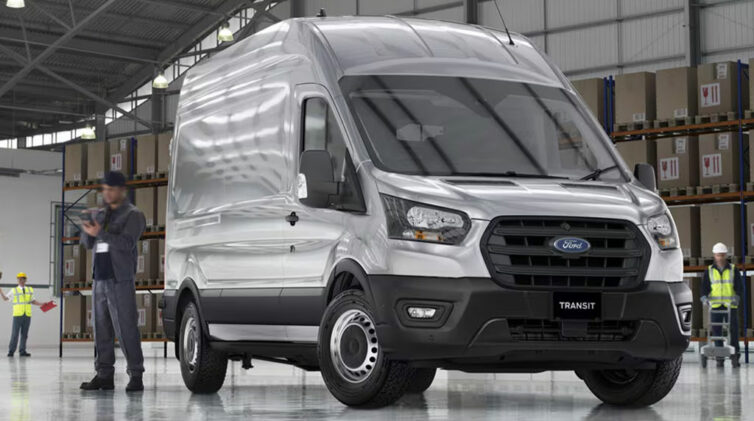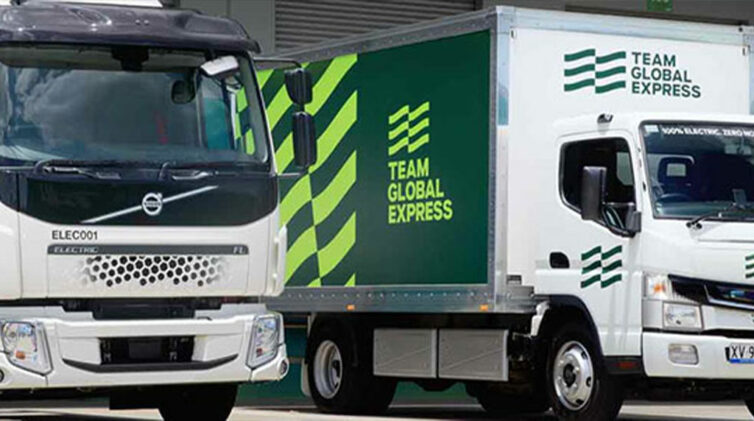Fuel tax payable by commercial operators is built into the price of diesel fuel and ostensibly the money goes to improve Australia’s public road network.
But Linfox has now queried the ATO on why it should pay the fuel tax when travelling on toll roads, recognising that toll roads are private and that commercial operators are already paying for the privilege of their use.
The clarification is being made before the High Court but no date has been set for the hearing. A newspaper report said if Linfox was found in favour of the judgement, it could lead to an immediate refund to transport operators of $50 million and reduce fuel tax liabilities in the future.
But Linfox general manager of marketing and communications Ken Griffin told GoAutoNews Premium that the hearing was solely to clarify Linfox’s position on the tax and there was no calculation available of any refund.
“This is purely a hearing to find out how the fuel tax credit should be treated in situations of private road use,” he said.

“We have always had a harmonious relationship with the ATO and this hearing will benefit both themselves and all transport operators.
“We’ve never calculated the refund, though we’re aware that it could result in some changes to the costs of operations.”
Linfox wants to now clarify the description of the words “public road” in the Fuel Tax Act 2006, section 43-10(3), that states “for travelling on a public road, the amount of your fuel tax credit is reduced by the amount of the road user charge for the fuel”.
In a press release, Linfox said the act does not define the term “public road”.
“Currently a Linfox truck travelling on a toll road pays the road user charge for this journey even though toll road repairs are not funded by the Government,” Linfox’s release said.
“The commissioner of taxation takes the view that a toll road is a public road for the purposes of applying the road user charge. Linfox estimates that 10 per cent of its journeys use a toll road.
“We have worked with the commissioner of taxation on this issue. In these discussions it was agreed that a court judgement would be the best way to clarify this issue.
“To illustrate our case, Linfox is contending that the M2 toll road in New South Wales does not meet the description ‘public road’ and therefore we have been incorrectly reducing the amount of fuel tax credits we have been entitled to through applying the road user charge.”
It said that if the court judgement agrees with the definition suggested by Linfox, “any taxpayers using fuel on any roads that do not meet the term ‘public road’ will be entitled to seek a refund of any fuel tax credits that have been under-claimed”.
Though the industry will benefit, Linfox is, however, the only party bringing the issue before the court.

Mr Griffin said he recognises the ramifications to the industry if the issue is in Linfox’s favour but, even if it is not, “we will know the ruling and will apply that for future tax records”.
“Linfox has a very good relationship with the ATO and we have always been very conscious of meeting our tax obligations,” he said.
It is the third time in the past five years that Linfox has queried the ATO over fuel tax matters.
In 2012 it asked for judgement on fuel tax payable when a truck was idling, so not using the road. This issue was joined by clarification sought by Linfox for paying fuel tax for truck sleeper cabin air conditioners that operate independently from the engine when the truck is parked and the driver sleeping or resting.
Both cases were ruled in favour of Linfox and truck operators were instructed to amend their fuel tax liabilities.
Fuel tax exemptions are already in place for heavy equipment used in off-road or on private roads such as mining tenements and forestry land.
The ATO has a fuel tax credit system that rebates a portion of the fuel costs of a commercial vehicle. In the case of a heavy haulage truck, it can credit the truck owner at the rate of between 12.0 cents a litre to 14.5 cents a litre.
The taxes on diesel fuel at, for example, $1.40 a litre are 37 per cent made up of fuel excise and GST, equating to 52 cents a litre.
It is this 52c that Linfox is querying.
By Neil Dowling













 Read More: Related articles
Read More: Related articles

